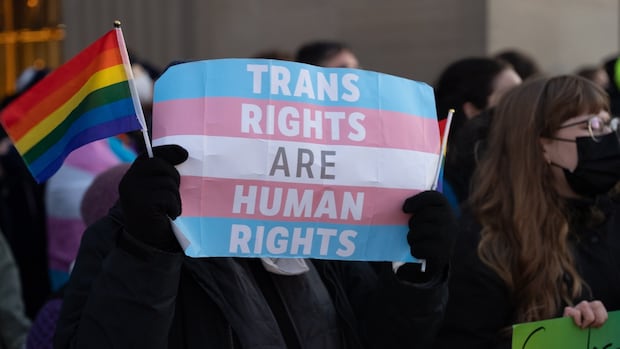With only hours to go until U.S. president-elect Donald Trump heads back to the Oval Office, Canadian officials say they still don’t know whether he will follow through on his standing threat to level punishing tariffs on Canadian goods.
“We’ve done a lot of good advocacy work, but we’re also now ready to respond to whatever decision [Trump] makes, assuming they come next,” said Finance Minister Dominic LeBlanc during an interview on Rosemary Barton Live that aired Sunday.
Trump has threatened to levy a 25 per cent across-the-board tariff on Canadian goods — a move that experts and lawmakers have warned would be devastating for the Canadian economy.
Canadian officials have scrambled to get Trump to back off. Prime Minister Justin Trudeau met with Trump in late November. Ontario has threatened to cut off energy exports. Now, Canada has prepared counter-tariffs that would apply to $37 billion in goods that would be less harmful to the Canadian economy.
When asked whether he has any indication about Trump’s tariff plan, LeBlanc said Canadian officials have been speaking with Republican senators and the president-elect’s cabinet secretaries, but the situation is still unclear.
CBC’s chief political correspondent Rosemary Barton speaks with finance minister Dominic LeBlanc about how Canada is preparing for potential tariffs from the United States. Barton also speaks with Ontario Energy Minister Stephen Lecce about his visit to Washington for the presidential inauguration, and Ontario’s response to U.S. president-elect Donald Trump’s tariff threat.
“Either they don’t know, or they’re not telling us or [president-elect] Trump hasn’t made those final decisions,” LeBlanc told host Rosemary Barton.
If it becomes necessary, LeBlanc said Canada’s initial plan is to have a “very short” consultation period on a first round of counter measures in response to whatever Trump may do and then consider escalation.
“Our objective is not to learn how to live with potential tariffs,” LeBlanc said. The goal, in his words, is to have “temporary measures to get us, we hope, out from the other side of these [U.S.] tariffs.”
Wilbur Ross, who served as commerce secretary during Trump’s first administration, said he doesn’t think the president-elect will enter office on Monday and automatically slap tariffs on Canada.
Ross also said it’s “good for Canada to make preparations so they aren’t scrambling around,” though he cautioned it’s not in Canada’s interest to get into a “turf war” with the U.S. since it’s so critical to the Canadian economy.
Federation infighting
Canada’s efforts to avoid Trump’s tariffs hit a snag on Wednesday following an hours-long meeting in Ottawa between all 13 premiers and the prime minister.
Alberta Premier Danielle Smith posted on social media saying she could not go along with the Canadian plan to take on Trump because federal government officials “continue to publicly and privately float the idea of cutting off energy supply to the U.S. and imposing export tariffs on Alberta energy and other products to the United States.”
“Until these threats cease, Alberta will not be able to fully support the federal government’s plan in dealing with the threatened tariffs,” she said.
As Danielle Smith prepares to attend Donald Trump’s inauguration, her approach to dealing with the threat of 25 per cent tariffs on goods coming from Canada has remained consistent. She’s trying to negotiate rather than retaliate. The CBC’s Sam Samson has more.
Smith’s comments drew the ire of Ontario Premier Doug Ford, who said “country comes first” and Canada needs to be united.
Ontario Energy Minister Stephen Lecce said the province understands Smith’s concerns, but “ultimately unity will be our strength.”
“Premier Ford has made the case that in order to maximize pressure on the U.S., in order to deny [president-elect] Trump the ability to divide and conquer within the federation, we need to be united,” Lecce said in an interview on Rosemary Barton Live.
LeBlanc said the federal government is confident there’s a “great deal of consensus” in Canada over how to proceed with Trump’s tariffs, and Ottawa is “sensitive” to Alberta’s concerns.
When asked why Canada can’t get Trump to back off his threats, Lecce said there’s been “shifting goalposts” by the president-elect, who has previously criticized Canada’s border security, defence spending and trade imbalance with the United States.
The U.S. can work with Ontario and Canada to “create an unstoppable energy alliance,” Lecce said, or it can pursue trade with “the world’s dictators.”
The Ontario energy minister also said he believes as “sober minds prevail,” and that the U.S. will recognize Canada’s economic value and realize the two countries “need each other in order to drive that growth.”













